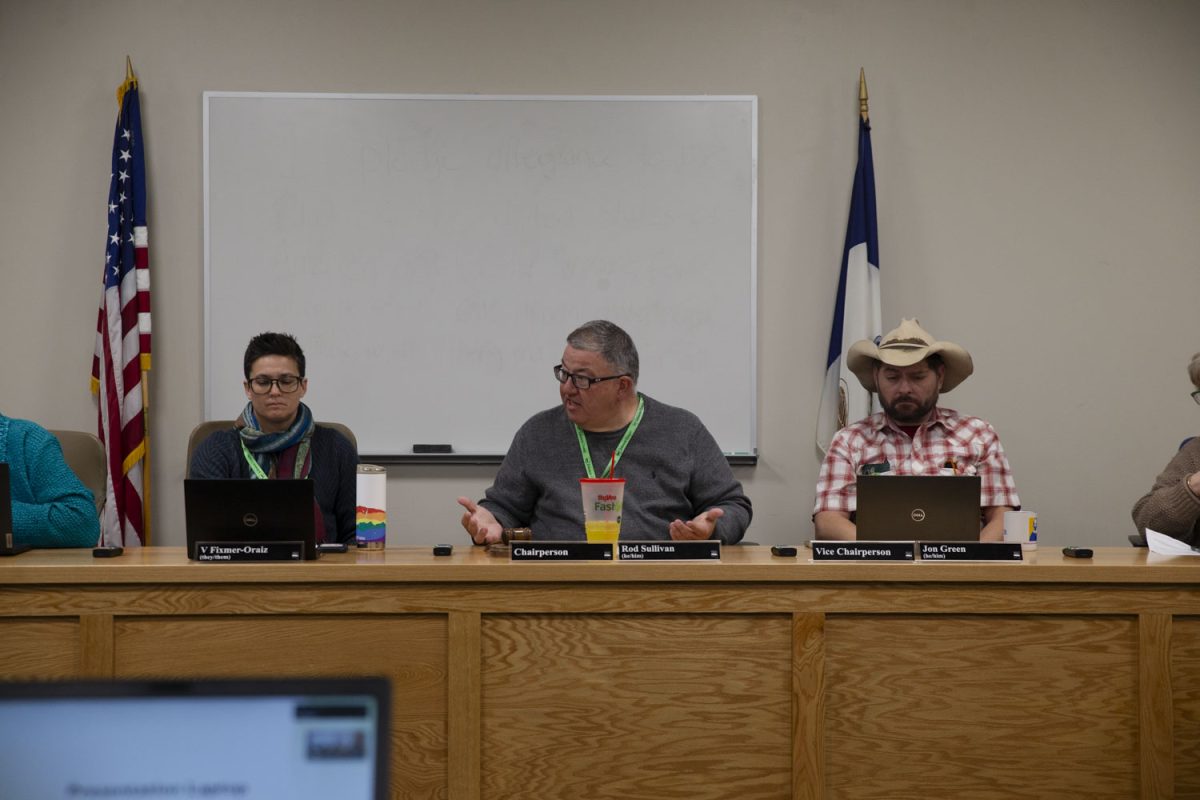The New York Times describes John D’Agata as, "a wolf in journalist’s clothing".
This is just one comment from a plethora of observations about the University of Iowa nonfiction writing professor’s latest book, The Lifespan of a Fact.
"I haven’t actually read the reviews directly," D’Agata said. "Partly because I’m teaching and I don’t want to be distracted, and partly because I have a cheesy little ritual I go through a year after a book comes out where I read all of the reviews and make a goofy art project out of them."
The controversy-sparking writer, who also wrote, About a Mountain and Halls of Fame, discovered his love for nonfiction when he was a junior at Hobart College and decided to change majors from classics to English. He picked up a nonfiction writing class to fulfill an elective, started writing essays, and realized that essays were a very familiar subject from his time as a Classics major.
"They’d always been with me, always been a part of who I was, so it was kind of exciting to find myself in a class that was allowing me to try to write these same sort of texts that I’d been attracted to as a reader for my entire adolescence," he said.
Now, as he teaches the nonfiction genre, D’Agata said he wants his students to consider nonfiction and the essay as a literary art form, with a rich history, something he said can be hard to find in other places around the country.
"There is a big difference between teaching nonfiction here and anywhere else," he said. "Based on my observations of other programs, I can say with confidence that we approach the genre more seriously here at Iowa than any other place in the U.S., and we’re able to do that because we are a purposefully diverse program."
At least one student seems to have grasped this message.
"The biggest thing that I’ve learned from John is to take myself seriously as a writer and an artist and take the work that I do seriously and feel like it’s important," said Lucas Mann, an M.F.A. student in nonfiction writing with D’Agata as his thesis adviser. "That’s not something that I felt before I came here."
D’Agata’s argument-inducing book The Lifespan of a Fact starts with a 20 page essay he wrote for a magazine and the more than 100 pages detailing the inaccuracies in those few pages that the fact checker turned in to his editor.
"It was so beautifully obsessive that it seemed to me a clear illustration of the disconnect between those of us who approach nonfiction as art and those of us who approach nonfiction as journalism and the problem that ensues when we insist on treating both approaches to the genre the exact same way," D’Agata said.
The fact checker, Jim Fingal, and D’Agata decided to heighten and dramatize their exchanges over the incorrect details and put them alongside the original essay to create the final product of The Lifespan of a Fact.
D’Agata’s colleague and the Distinguished Visiting Writer in Nonfiction at the UI, Honor Moore, said she believes D’Agata is breaking new ground in the essay.
"I think that the issue of fact is a very interesting and timely subject, and John has jumped right into the middle of it," she said. "I think it’s a healthy dialogue that’s very important in the culture right now."
D’Agata said he just wants people to realize that fiction and fact are not absolutes.
"If anything, fact and fiction are poles between which there is a lot of room for negotiation and a great deal of variation," he said.






